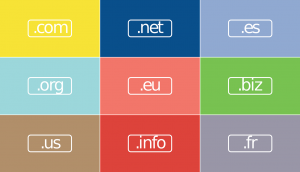The B2B sales process is long and sophisticated. Before a client makes a purchase, they have to be assured that they will be getting the benefits they were promised. They need to feel secure about the salespeople they dealt with, the brand they’re entering business with, and the product they’re purchasing.
Salespeople need to be able to communicate pricing, quality, after-sales services, modes of payment, onboarding, and delivery in the clearest way possible. However, the purchase will not only rely on the salesperson’s ability to tell the prospect about these things–the rep must get the prospect’s trust and confidence; that what they’re saying is true and can be relied upon.
Product knowledge and inside sales
Inside sales teams often deal with high-ticket b2b deals. In order to deliver results, they need to know your product inside and out. This way, they can sell with confidence and be able to get the prospect’s trust through their competence.
Inside sales reps with insubstantial product knowledge will hurt your sales organization. When a rep reaches out to prospects with a limited understanding of your solution, all conversations are hinged on luck. Sure, they might chance upon a prospect who already knows about your product and are okay with a not-so-in-depth discussion–but it’s more likely that this rep will get more losses because they do not have the full armory of features that they can use to show prospects the benefits of using your product.
Product knowledge is essential for any sales organization. To foster positive customer experience and create trust between reps and prospects, showing strong expertise of your solutions is crucial.
Understanding the essentials
To create an army of competent sales reps, you need to instill product knowledge right from the beginning. Salespeople need to be able to answer basic inquiries regarding your product and place it in the context of different business challenges. Here are some questions they need to able to answer:
- How will the product benefit customers in X industry?
- What are the products basic characteristics? (Software type, platform, function)
- How is it delivered?
- What are the conditions of use?
- How much does it cost?
Apart from these basic questions, it’s essential for salespeople to understand why your company is the best choice to get this solution from. Having enough information to set your brand apart from the competition is an absolute necessity in a rep’s toolkit.
Salespeople need to have the ability and resources to relay these details as quickly and efficiently as possible, be it through writing or conversation. Sales collateral needs to be readily available for reps to review and send to prospects as needed. That said, they shouldn’t rely on these documents wholly. B2B prospects are easily turned off by a rep who has to refer to a document in order to answer a simple question. Salespeople need to be able to answer basic questions in a simple and customer-centric way without pulling up files.
However, something to look out for is sales reps talking to prospects in technical jargon. Within your company, it may be common to talk about features and benefits in technical terms. From the prospect’s perspective, they are often only interested in knowing how the product will benefit them in real and practical terms.
Personalizing customer interactions
After a deal has been closed, what the customer often remembers is their experience with the rep. The way a rep acted and talked to them during sales conversations played a major role in their decision to purchase. Customers prefer that they’re not treated just like a lead. This is where the customer service component of sales comes into play. You need to be as interested in helping them solve their challenges as you are in getting the deal.
To bring good customer service into every sales conversation, reps need to have great product knowledge. Why? It is only through knowing products inside and out will reps be able to cater to customers with different challenges. A deep knowledge of how your products work and how they help businesses with various problems is what’s needed in order for reps to provide a tailored experience to prospects.
Highlighting benefits over features
Knowing your solution’s list of features helps your prospect make an informed decision. However, without understanding these features in the context of their challenges, it can leave them swamped with information they don’t see the value of.
Having a deep understanding of your product allows reps to tell prospects how your solution will make a difference in their operations; whether it’s going to make their operations more efficient, their employees more productive, or their pipeline fuller and more active.
Product knowledge training
So how do you train your reps on product knowledge? Here are some ideas.
Explain the importance of product training
Being each product training session with a story or a quote that emphasizes the importance of knowing your product thoroughly. Lookup influencers in the business space. Read their articles and features–find a quote or a short anecdote that demonstrates the importance of product knowledge. Make sure that you’re able to tie back the quote with your reps’ experiences on the sales floor for better recall.
Use games to make product learning fun
Gamifying training is a great way to get your reps involved and have fun in the process. Incorporating game mechanics into product training has been a proven approach–use quizzes, contests, even incentivized games to get better engagement in your training programs. Creating this fun atmosphere around learning about your products will reinforce product knowledge while not adding to the stress of their everyday jobs.
Employ memory exercises
Pop quizzes and other memory exercises should be incorporated into their daily operations on the sales floor. These activities help them be always on their toes when it comes to keeping up with product updates and basic product knowledge. Sales managers could assign a rep each week to enforce these exercises during work hours in a way that doesn’t disrupt operations.
Product training software
Consider using product training software to facilitate learning across the sales floor. Through guided self-learning, your sales organization can save on training costs and maximize rep efficiency. Most product training software also comes with analytics functionality that allows leaders to customize training modules according to the rep’s performance.
Capture customer feedback
Getting the feedback of your customers is crucial in getting first-hand insight into how your reps are performing during their calls. Knowing what your customers really think allows employees to understand what works from the perspective of their prospects. Use surveys, feedback emails, or even follow up calls to directly ask your customers and prospects about the positives and negatives of how reps handle calls. Knowing these details will help sales leaders design programs to improve product knowledge, customer service, and call handling in general.
—–
Reps who are knowledgeable about the ins and outs of the product they’re selling are those who are most effective in delivering moments of delight to customers. In today’s competitive business landscape, it’s important to equip your teams with the necessary information needed to win out clients before your competitors do. Don’t scrimp on training and investing in your reps. As Maurice Clapton said, “Knowledge pays off more than any other investment.”
Business & Finance Articles on Business 2 Community(121)





